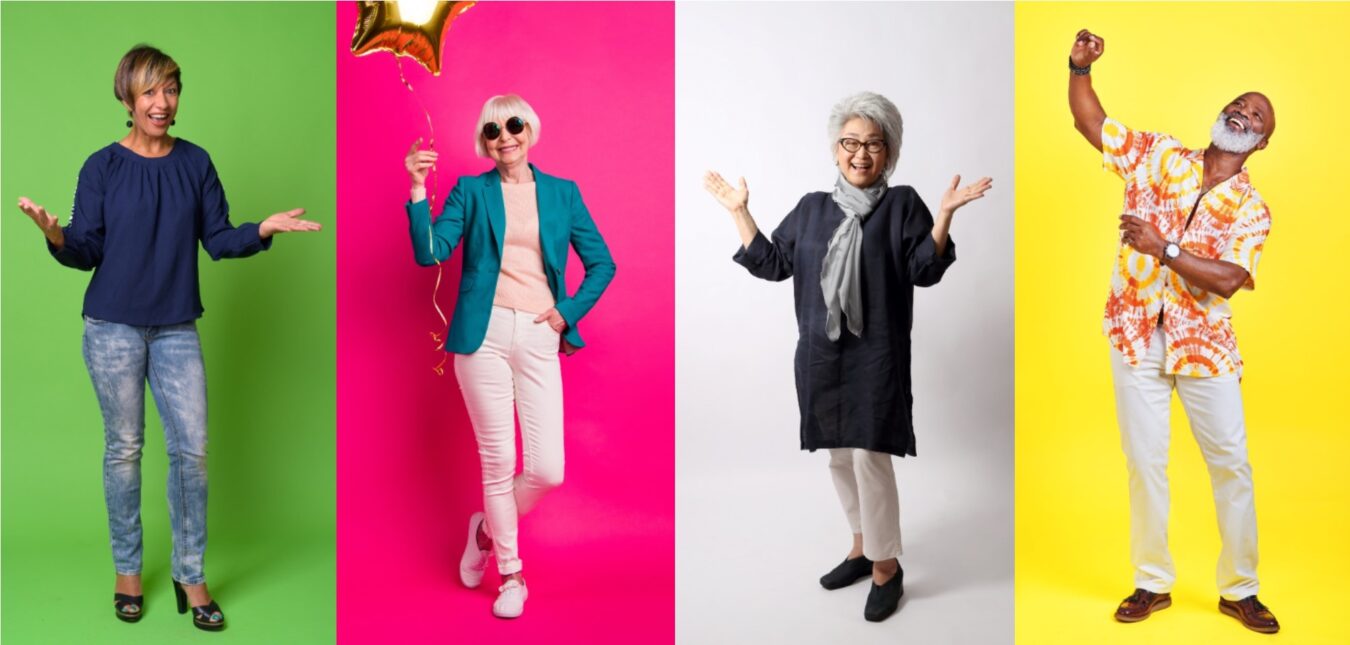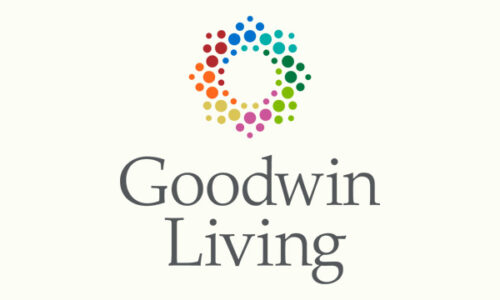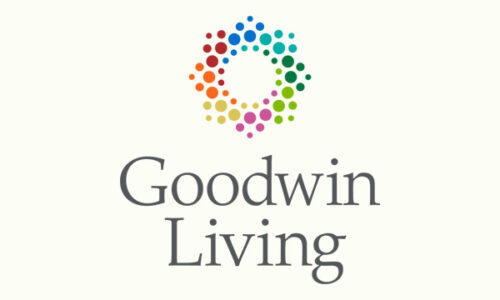Fighting Ageism, One Blog Post at a Time
By Kathie Miller
When I applied for my first job with Goodwin Living, an interview with residents was part of the last round of interviews. Over the course of a few hours one day, I was whisked through a series of meetings—one with the team I was joining, another with colleagues who would work closely with me, yet another with the executive director, and lastly with six residents.
Each interview session included some version of the same question. It was clear each group was curious to know why I was seeking a job in senior living and healthcare after nearly 15 years working for a news organization. While every group asked the same question in their own way, the group that asked it in a way that still stays with me today was the group of residents.
“How do you feel about old people,” one resident asked pointedly.
Without hesitation, I replied, “I hope to be one someday.”
Understanding Ageism
This direct question remains so clear in my memory, and it has taken on new meaning since I joined Goodwin Living nearly seven years ago. I quickly realized how real ageism is and the impact is has on all of us, not just those whom society deems as “old”.
Ageism is simply defined as discrimination or stereotyping individuals based on their age. As the WHO (World Health Organization) points out, it can have considerable impacts on health and social wellbeing of older adults. Research confirms this.
Supported by the Yale School of Public Health and the National Institute on Aging, one recent study explored the effects of ageism in 45 countries. The results were impressive. The study confirmed there were negative effects of ageism in all 45 countries. “Ageism led to significantly worse health outcomes in 95.5% of the studies,” the study reported. “Evidence of ageism was found across the age, sex and race/ethnicity of the persons perpetrating ageism.”
Research to Help Combat Ageism
Ageism is clearly a global issue. It is also a complicated one.
A 2019 study published in the International Journal of Environmental Research and Public Health examined whether there were connections between knowledge, age and anxiety about aging and stereotypes toward older adults. It also explored whether these factors played predictive roles in how ageist attitudes are developed and maintained over time.
In its conclusion the study notes, “Ageism is quite different from other forms of prejudice because it represents bias and discrimination by members of one group against members of a second group which the first group will one day join. In fact, categorization of an individual by age is not static, and changes over the course of the life cycle. This makes it different from discrimination based on race and gender, which remain consistent categories.”
For this study, researchers administered a questionnaire to 886 participants. The average age of participants was 35.8 years, and the group was 64.8% female. Through analysis of the self-reported answers, researchers determined that the precursors for negative stereotypes of older people are anxiety about aging and lack of knowledge about the aging process.
As the study reported: “Increased education about the aging process could help reduce anxiety and stereotypes against the aging among those who are most responsible for prejudice against the elderly.” This study suggests that the key to changing attitudes towards older adults is raising awareness of how we develop prejudice in the first place.
Positive Aging
Through our blog, we keep you informed about the many aspects of aging. Two recent blog articles shared ways to prevent falls and ways to reduce your risk of dementia. We also feature exercises designed to keep you fit and tips to help you eat a healthy diet.
Above and beyond these guides, tips and resources on the aging process, we share stories about residents, members and the many older adults who inspire us every day. We have shared stories of love that never grows old, and stories of residents and members who organized themselves for an annual day of volunteering. Very recently, a group of residents were recognized by LeadingAge Virginia for their advocacy and activism.
Aging Aspirations
My response to an interview question made residents to smile, and possibly helped me get the job offer. Today, nearly seven years later, I realize my attitude towards aging has changed. Not just because I’m more exposed to information about the aging process, but because I see examples of older adults living their best lives.
Before working at Goodwin Living, I thought about aging the ways I suppose many of us do. I didn’t spend much time actively thinking about it, but I was reminded of it whenever I spotted a new wrinkle, celebrated a birthday or received the type of news that reminds us time passes quickly and life can seem too short. And when I did think of it, it might have brought a sense of fear or dread or sadness.
Thanks to Goodwin Living, my perspective of aging has changed. Rather than focus on the wrinkle, I contemplate how many smiles it took to create it. Rather than think about adding another year to my age, I reflect on another year of happy memories. And rather than focus on the loss, I celebrate a life lived and a person loved enough to be missed by others. The Goodwin Living family and communities serve as a constant reminder of this process we all go through, a reminder that aging is something to embrace, not fear.
Author’s Note: This blog post was written and posted in support of the International Day of Older Persons. The United Nations (UN) General Assembly established this awareness day in 1990 to bring greater attention to the needs of older people around the globe, while also celebrating their significant role in society. This year’s theme is “Pandemics: Do They Change How We Address Age and Ageing?” We have written much about COVID-19 on the blog, so we chose to focus more on combating ageism and celebrating older adults for all that they bring to our world.
————————–
As Corporate Director of Marketing & Communications, Kathie Miller provides strategic guidance and tactical support for all areas of Goodwin Living. She writes, edits and manages The Good Life blog and newsletter. Kathie joined GHI in 2014 after nearly 15 years at NPR, where she honed her skills in brand and reputation management, content marketing and internal communications. Originally from Pennsylvania, Kathie has slowly come to realize she’s lived in Arlington for more than half her life and should call herself a Virginian. She enjoys the outdoors and brings her rescue dog, Remi, to work every day.





